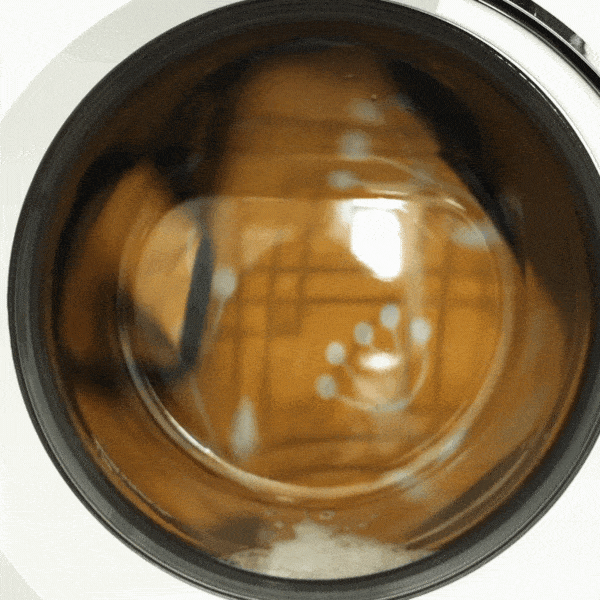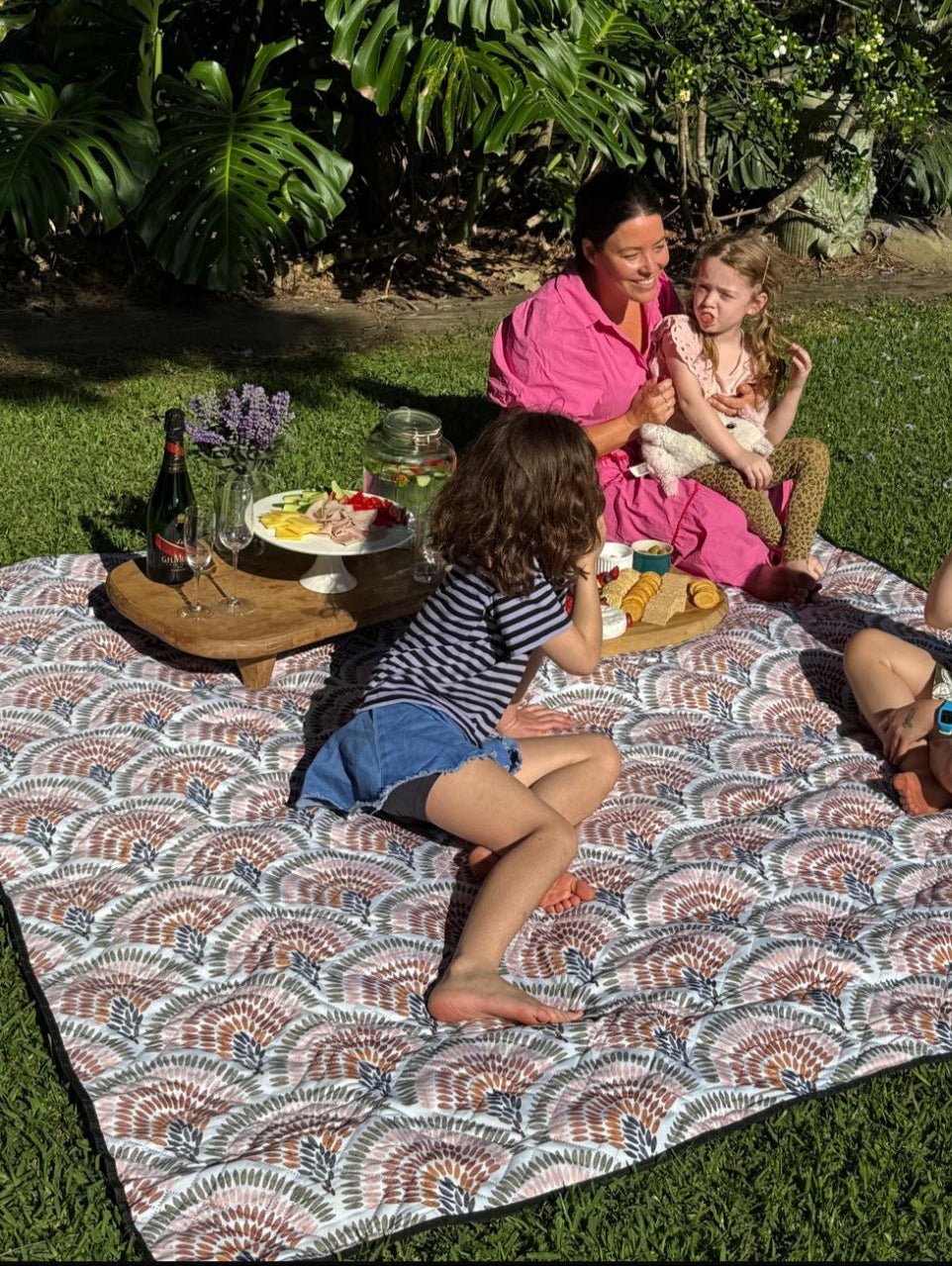My wife Emma and I are blessed to have two gorgeous Gen-Z girls that could be best described as mini eco warriors. From a very young age they both showed interest in doing things that can help save the environment, which by default meant that we too, became interested in environmental issues also.
Our trips to the beach to walk the dogs started to resemble a Clean Up Australia Day event. Always led by our youngest, Abbie, who would always hit me me to post on Facebook to try and recruit more helpers. One Christmas she wrote to Santa asking only one thing ... a Litter Picker (those mechanical arms used for picking up rubbish)

Our eldest, Chloe, taught herself in 4th grade how to make candles and started “Shining A Light”, where she would sell her candles to friends and family on Facebook marketplace. She would also set up a stall at her school's Spring Fair, donating every cent from her candle sales to charity organisations like Take 3 for the Sea, who visited her school once and definitely left an impression on her.
My two (not so little anymore) Angels have made both Emma and I way more aware of issues affecting our planet than anyone else in our lifetime, this awareness has had us wanting to do what we can help, both personally, and professionally.
So when we decided to start our latest business venture, Saltwater Picnic Co. which involves designing and producing products for picnics, we saw it as an opportunity to avoid the traditional linear system of product manufacturing and instead look to create a more full circle, eco-friendly business model.

The traditional linear model is often described as the “take-make-waste” system. It begins by taking raw materials from the Earth, then uses those materials to make products, which are sold to consumers and eventually disposed of once the product stops serving its desired purpose.
This system is focused primarily on revenue generation, so most business decisions are made based on monetary versus environmental considerations. It’s my belief that this business model is the root cause of most of the environmental issues we are facing today.
With our desire to do things differently and the technology available to create products that both Emma and I and the kids would be super proud of. Saltwater Picnic Co. as a concept was looking promising, but to consider actually launching, we had a long list of criteria to tick off.
Below is the list of criteria that made up our due diligence for Saltwater Picnic Co. It included Product Criteria, which was what we needed to create the perfect picnic rug. A Manufacturing Criteria, which stated our non-negotiables in regard to our manufacturing process and supply partners and a Business Criteria which listed everything we would do as a business if we met the product and manufacturing criteria and actually had a product to sell.
Product Criteria
Water Resistant - The rugs underside needed to be able to be used on Dewy Grass with no moisture able to seep through.
Stain Proof - The rugs upper needed to be able to make liquids bead versus soak into the material to avoid staining and make them easy to clean.
Machine Washable - The rugs needed to be manufactured in a way that allowed them to be machine washed to maintain their quality and improve longevity.
Repel Sand & Grass Seeds - As well as be water resistant the underside of the rug needed to repel sand and grass seeds so it can be packed away clean.
Large Single Piece - The rug needed to be big enough to fit the whole family while crafted from a single piece of material. No joins means no fail points.
Manufacturing Criteria
Recycled Fabrics - Our rugs had to be 100% crafted from fabrics made from plastic waste.
Renewable Energy - Our product had to be manufactured in facilities that utilised renewable energy.
Made with Love - Staff of our manufacturing partner had to be happy with their employment and love our project (and mission) to be considered being part of it.
Business Criteria
Support Aussie Creatives - We wanted to facilitate design collaborations with local artists, designers and creatives.
Priced to Perform - Pricing of our products had to factor in all our environmental and reinvestment criteria, no shortcuts, no exceptions.
Create an Onward Path - We needed to have solutions that easily allow customers to repurpose the rugs when they are done with them to keep our materials in use.
Carbon Offset - While we focused on reducing plastic waste and renewable energy in our Manufacturing brief, any carbon footprint also had to be offset.
Support Environmental Charities - A large percentage of our profits needed to be invested in environmental charity organisations, especially those focused on plastic waste education and repairing damaged ecosystems.
It took just shy of 15 months of research and development to tick every single box in every single criteria area, but we did it, and as a result Saltwater Picnic Co. is now a living breathing eco focused picnic rug manufacturer.

Unfortunately we couldn’t do it all in our native homeland of Australia, as the focus here has been away from manufacturing for some time now, and as a result the technology we needed was not available. By pure luck we found the best sourcing agent in the business and he set about scouring the world for a solution to tick our boxes and found a solution in China.
I, like most, was highly sceptical about working with China. But after meeting with the owners and talking (through a translator) to their staff, it didn't take long to realise that they are not too dissimilar to us, despite what we had heard through the media. They too had an environmental focus with their business that we loved, sourcing recycled materials and utilising solar on their factory well before we started working with them, which is how Moos (our agent) found them.

They loved our eco design ethos and focus on stopping waste before it is even created. Especially the concept of building a community around selling pre-loved rugs and repurposing the unsaleable ones as much needed floor mats for dog shelters.
So with the Product and Manufacturing sorted it was time to find some environmental charity organisations to partner with. We didn't want our focus to be solely on doing less harm to the environment, but wanted to invest in programs that can actively improve it.
This is where we found Ecologi, which is an organisation that amazingly ticks a couple of our boxes as they repair damaged ecosystems around the globe, but they do so by replanting. So by supporting them we can help places that really need it, like the mangroves in Madagascar, while massively reducing our carbon footprint.
At the time of writing, our mangrove forest is 577 trees strong and counting, and with one mangrove tree removing 308kg of carbon from the atmosphere over its growth life, we can expect to remove around 180 tonnes of carbon through our efforts so far. This is something our family, especially the kids, are super proud of.
We have also found a fantastic charity partner in Plastic Oceans Australasia. These guys are doing a fantastic job through their schools and business programs to educate kids and organisations around the damaging effects of single use plastics and the associated issues with their waste.

Each September they do a project called Picnics Unwrapped, which is an initiative that we have partnered with them on. Picnics Unwrapped encourages everyone to have a plastic free picnic in the month of September to raise awareness of their cause.
They also have Oceans in Motion, which is a film competition that schools can enter and document their plastic waste initiatives. The whole movement stemmed from a documentary project “A Plastic Oceans”, so the film project is a fitting one that has created some great content and something that the kids love getting involved in.
As our brand and business grows, so will our involvement in environmental issues that stem from negative effects on ecosystems due to business operations. I know we are just one small brand in a world full of brands and businesses, but every little bit has to help keep the world sustainable enough so our kids can try and realise their dream of starting a business or brand in the future … if they choose to.




